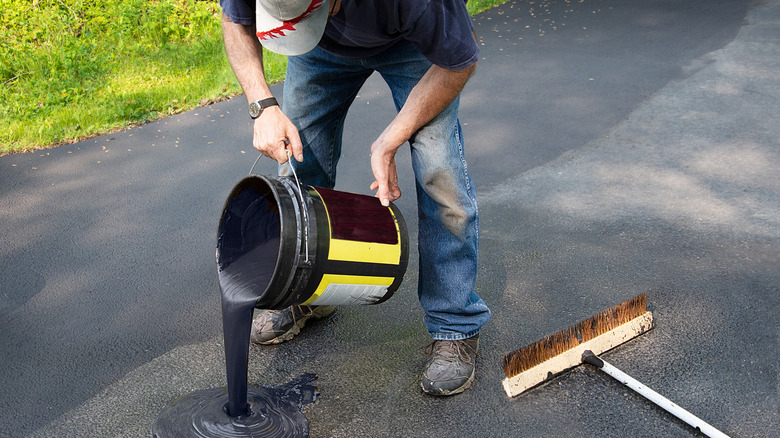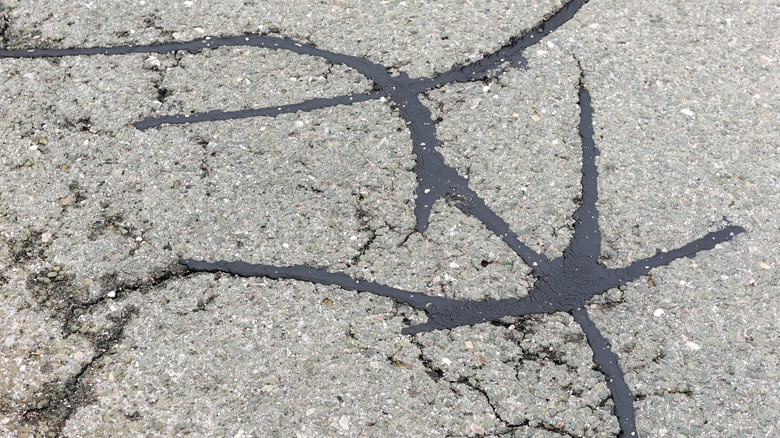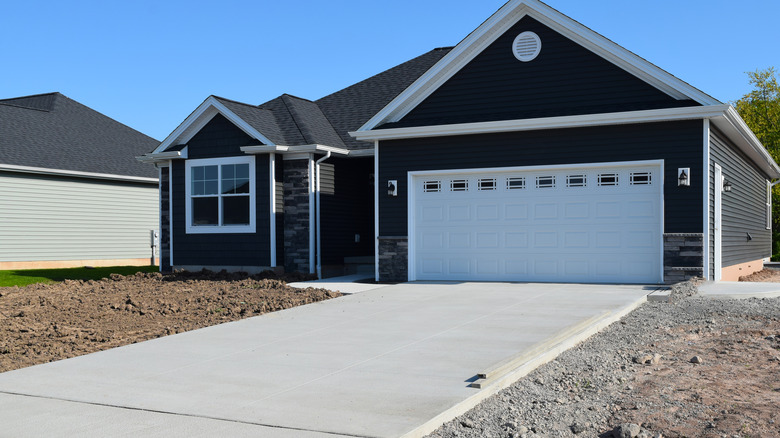Do You Really Need To Seal Your Driveway?
Sealing a driveway may seem like a commonsense part of its regular maintenance. After all, you're extending its life, right?
Depending on the material and whom you ask, the answer can go either way. Regardless, many contractors will give you the pros and cons of sealing and outline the process in order for you to make an informed decision. To start off, we've looked into this question to find out if you need to seal your driveway and whether it makes a difference in its overall longevity and the future need (or lack of) for repairs.
Additionally, our focus is on two of the most common paving materials: asphalt and concrete. You can apply a seal coat to both types. As a matter of fact, as noted by Forbes, an asphalt driveway needs an application of sealant every now and then, whereas concrete types are durable and low-maintenance. But do the process and upfront costs translate into long-term benefits? Let's find out.
Reasons for sealing your driveway
For asphalt driveways, sealing offers some advantages, per Home Inspection Insider. To begin with, the material is vulnerable to water penetration and UV rays, both of which contribute to cracking and the creation of potholes. In turn, this provides a gateway for water to get underneath the surface and wreak more havoc. Eventually, the exposure to sun and water will cause the asphalt to crumble and deteriorate.
Sealing can potentially prevent this from happening. In fact, when you seal an asphalt driveway at two- to three-year intervals, you can prolong its life by 20 years, as the coating provides protection against the sun and repels moisture.
Similarly, applying a concrete sealant also has its advantages, such as providing a barrier against water, mold, and stains, while also guarding against harmful UV rays, notes Gambrick. With concrete being a porous material, it tends to absorb liquids. Plus, if you live in a region with freezing temperatures and snow thaw, you end up dealing with cracks that cost more to repair than to seal. Not only that, but sealing can increase your driveway's lifespan by up to 30 years while also enhancing your home's curb appeal, per the Detroit News.
When sealing isn't a good idea
While sealing a driveway has its benefits, there are times when you might need to bypass it altogether. Your Own Architect recommends not doing it if the pavement has never been sealed previously. In other words, if any years have passed without any major pavement issues, then sealing it now wouldn't be feasible. So, save yourself the time and expense. Otherwise, once you start the process, you have to keep repeating it. But be careful about resealing too often, as this can damage the driveway's structure over time.
For concrete driveways, the No. 1 reason to avoid sealing is its effect on the surface (per Plasticine House), which becomes quite slick and slippery after drying. The shiny surface may look nice, but you're sacrificing safety. Furthermore, resealing gets expensive because it's not a typical DIY project. The chemicals give off hazardous fumes, and if you're not careful, they might leach into the ground. Indeed, this may require the help of a professional, which means shelling out money for labor costs. Additionally, you'll have to repeat the process every year, although you may get away with waiting three years.


